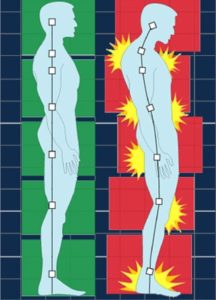
Your body is like a sophisticated engine that can switch between different fuel sources. Think of it as having both a gas tank and a backup generator. Most of the time, we’re running on sugar, but there’s a whole other system waiting to kick in. The secret lies in teaching your body to become a fat-burning machine instead of a sugar-dependent one. This transformation doesn’t happen overnight, but with the right approach and VittaBurn drops, you can flip that metabolic switch. Let’s explore how to wake up your body’s dormant fat-burning superpowers.
Strategic Meal Timing and Intermittent Fasting
 Intermittent fasting works because it forces your body to dig into its stored energy reserves. Picture your body as a smartphone that’s been plugged in all day – it never needs to use the battery. By creating windows without food, you’re essentially unplugging the charger and letting the battery do its job. A 16-hour fast followed by an 8-hour eating window gives your digestive system a break while encouraging fat oxidation. Your insulin levels drop during fasting periods, which is like removing the lock from your fat storage vault. Many people find that eating their last meal by 6 PM and breaking their fast at 10 AM the next day works well with their lifestyle. The beauty of this approach is that your body learns to efficiently switch between fuel sources.
Intermittent fasting works because it forces your body to dig into its stored energy reserves. Picture your body as a smartphone that’s been plugged in all day – it never needs to use the battery. By creating windows without food, you’re essentially unplugging the charger and letting the battery do its job. A 16-hour fast followed by an 8-hour eating window gives your digestive system a break while encouraging fat oxidation. Your insulin levels drop during fasting periods, which is like removing the lock from your fat storage vault. Many people find that eating their last meal by 6 PM and breaking their fast at 10 AM the next day works well with their lifestyle. The beauty of this approach is that your body learns to efficiently switch between fuel sources.
High-Intensity Interval Training and Strength Building
HIIT workouts are like pressing the turbo button on your metabolism. These short bursts of intense activity followed by recovery periods create an afterburn effect that keeps your body working hours after you’ve finished exercising. Your muscles become hungry for energy, and they’re not picky about where it comes from. Strength training builds lean muscle mass, which is like adding more engines to your metabolic car. Each pound of muscle burns more calories at rest than fat tissue does. Compound movements like squats, deadlifts, and push-ups work multiple muscle groups simultaneously, maximizing your caloric burn. The combination of cardio and strength training creates a powerful one-two punch for fat loss.

Sleep Quality and Stress Management
Poor sleep is like trying to run a marathon with your shoelaces tied together. When you don’t get enough quality rest, your hormones go haywire, particularly cortisol and ghrelin, which control hunger and stress. Aim for 7-9 hours of sleep in a cool, dark room to optimize your body’s natural recovery processes. Chronic stress keeps your body in survival mode, holding onto fat like a squirrel hoarding nuts for winter. Meditation, deep breathing, or even a simple walk in nature can help reset your stress response. Managing stress isn’t just about feeling better – it’s about creating the right internal environment for fat burning to occur.
Hydration and Metabolic Boosting Foods
 Water is the unsung hero of fat burning. Your body needs adequate hydration to efficiently process stored fat, and even mild dehydration can slow your metabolism. Drinking cold water forces your body to work harder to maintain its temperature, burning a few extra calories in the process. Certain foods naturally boost your metabolic rate through their thermic effect – the energy required to digest them. Protein-rich foods like lean meats, fish, and eggs require more energy to process than carbohydrates or fats. Spicy foods containing capsaicin can temporarily increase your metabolic rate by raising your body temperature. Green tea contains compounds that may help enhance fat oxidation, especially when combined with exercise. Activating your body’s natural fat-burning process isn’t about following the latest fad diet or punishing yourself with extreme measures.
Water is the unsung hero of fat burning. Your body needs adequate hydration to efficiently process stored fat, and even mild dehydration can slow your metabolism. Drinking cold water forces your body to work harder to maintain its temperature, burning a few extra calories in the process. Certain foods naturally boost your metabolic rate through their thermic effect – the energy required to digest them. Protein-rich foods like lean meats, fish, and eggs require more energy to process than carbohydrates or fats. Spicy foods containing capsaicin can temporarily increase your metabolic rate by raising your body temperature. Green tea contains compounds that may help enhance fat oxidation, especially when combined with exercise. Activating your body’s natural fat-burning process isn’t about following the latest fad diet or punishing yourself with extreme measures.
It’s about working with your body’s existing systems and giving them the right conditions to thrive. The combination of strategic eating patterns, effective exercise, quality sleep, stress management, and proper nutrition creates a powerful synergy. Remember that sustainable changes take time to show results, but the payoff is worth the patience. Your body has incredible adaptive capabilities – you just need to give it the right signals to start burning fat efficiently.


 Here’s the thing: you could hire the best trainer in the world and still fall off track if your mindset isn’t in the right place. Why? Because behavior comes from thought. Your choices—what you eat, when you move, how you treat your body—all start with what’s going on upstairs. If your inner dialogue is full of guilt, shame, or unrealistic pressure, no amount of gym time will make it stick. On the other hand, if you’re learning to build habits based on self-respect and long-term thinking, the results will last way longer than any fad diet ever could. Where to buy weight loss supplements or fat burners may not matter if you’re not in the right headspace.
Here’s the thing: you could hire the best trainer in the world and still fall off track if your mindset isn’t in the right place. Why? Because behavior comes from thought. Your choices—what you eat, when you move, how you treat your body—all start with what’s going on upstairs. If your inner dialogue is full of guilt, shame, or unrealistic pressure, no amount of gym time will make it stick. On the other hand, if you’re learning to build habits based on self-respect and long-term thinking, the results will last way longer than any fad diet ever could. Where to buy weight loss supplements or fat burners may not matter if you’re not in the right headspace. Motivation is great, but let’s be honest: it’s not reliable. It comes and goes. One bad day, one skipped workout, and boom—your whole plan can feel like it’s falling apart. What works? Mental discipline. Creating routines. Training your brain to follow through, even when you’re not in the mood. That’s how athletes do it. That’s how healthy people stay consistent. It’s not about waking up excited every day—it’s about building a mindset that helps you show up, no matter what.
Motivation is great, but let’s be honest: it’s not reliable. It comes and goes. One bad day, one skipped workout, and boom—your whole plan can feel like it’s falling apart. What works? Mental discipline. Creating routines. Training your brain to follow through, even when you’re not in the mood. That’s how athletes do it. That’s how healthy people stay consistent. It’s not about waking up excited every day—it’s about building a mindset that helps you show up, no matter what.









 Patient education establishes a foundation of trust between the dentist and the patient. By providing valuable information and educating patients about oral health, dental procedures, and the benefits of maintaining good oral hygiene, dentists build credibility and establish themselves as authoritative figures. When patients feel well-informed, they are more likely to trust their dentist’s recommendations and adhere to their treatment plans. This trust leads to increased patient satisfaction, loyalty, and, ultimately, positive word-of-mouth referrals.
Patient education establishes a foundation of trust between the dentist and the patient. By providing valuable information and educating patients about oral health, dental procedures, and the benefits of maintaining good oral hygiene, dentists build credibility and establish themselves as authoritative figures. When patients feel well-informed, they are more likely to trust their dentist’s recommendations and adhere to their treatment plans. This trust leads to increased patient satisfaction, loyalty, and, ultimately, positive word-of-mouth referrals. In the vast and competitive landscape of dental practices, establishing thought leadership is crucial for attracting and retaining patients. Patient education content should go beyond basic oral hygiene tips and cover a wide range of oral health topics, including advancements in dentistry, emerging treatments, and oral care during special circumstances like pregnancy or age-related concerns. By consistently producing informative and engaging content, dental practices can position themselves as trusted authorities in the field, which not only enhances their professional reputation but also expands their reach and visibility in the digital realm. By enhancing patient trust and loyalty, improving treatment plan compliance, empowering patients for informed decision-making, and establishing thought leadership, dental practices can effectively engage with patients and differentiate themselves in an increasingly competitive market.
In the vast and competitive landscape of dental practices, establishing thought leadership is crucial for attracting and retaining patients. Patient education content should go beyond basic oral hygiene tips and cover a wide range of oral health topics, including advancements in dentistry, emerging treatments, and oral care during special circumstances like pregnancy or age-related concerns. By consistently producing informative and engaging content, dental practices can position themselves as trusted authorities in the field, which not only enhances their professional reputation but also expands their reach and visibility in the digital realm. By enhancing patient trust and loyalty, improving treatment plan compliance, empowering patients for informed decision-making, and establishing thought leadership, dental practices can effectively engage with patients and differentiate themselves in an increasingly competitive market.



 Poor Diet
Poor Diet Medications are a common cause of gut problems. While they may be necessary, certain medications can have side effects that affect the digestive system. For example, antibiotics can disrupt the balance of bacteria in the gut leading to diarrhea and other gastrointestinal symptoms. Nonsteroidal anti-inflammatory drugs (NSAIDs) such as aspirin and ibuprofen can cause irritation and inflammation in the lining of the stomach and intestines leading to ulcers or bleeding. These medications should always be taken with food or avoided altogether if possible. Some prescription drugs used for treating depression, anxiety, hypertension, and other conditions also have gastrointestinal side effects like nausea, vomiting, constipation, or diarrhea.
Medications are a common cause of gut problems. While they may be necessary, certain medications can have side effects that affect the digestive system. For example, antibiotics can disrupt the balance of bacteria in the gut leading to diarrhea and other gastrointestinal symptoms. Nonsteroidal anti-inflammatory drugs (NSAIDs) such as aspirin and ibuprofen can cause irritation and inflammation in the lining of the stomach and intestines leading to ulcers or bleeding. These medications should always be taken with food or avoided altogether if possible. Some prescription drugs used for treating depression, anxiety, hypertension, and other conditions also have gastrointestinal side effects like nausea, vomiting, constipation, or diarrhea.

 Exercising is one of the most effective ways to lose weight and improve overall health. By engaging in physical activity, you can burn calories, build muscle, and boost your metabolism. However, it’s important to find an exercise routine that works for you and fits into your lifestyle.
Exercising is one of the most effective ways to lose weight and improve overall health. By engaging in physical activity, you can burn calories, build muscle, and boost your metabolism. However, it’s important to find an exercise routine that works for you and fits into your lifestyle.
 One of the most important things to understand when choosing protein foods is the difference between healthy and unhealthy options. Unhealthy protein foods are typically high in saturated fat and cholesterol, increasing your risk for heart disease and other health problems. On the other hand, healthy protein foods generally are leaner and lower in saturated fat and cholesterol.
One of the most important things to understand when choosing protein foods is the difference between healthy and unhealthy options. Unhealthy protein foods are typically high in saturated fat and cholesterol, increasing your risk for heart disease and other health problems. On the other hand, healthy protein foods generally are leaner and lower in saturated fat and cholesterol. One of the best ways to ensure that you get healthy protein foods is to prepare meals and snacks at home using healthy ingredients. There are many delicious and nutritious recipes that you can make at home using healthy protein foods. You can also find healthy protein-rich foods at your local grocery or health food store. By preparing meals and snacks at home, you can control the ingredients and ensure you are getting the nutrients you need.
One of the best ways to ensure that you get healthy protein foods is to prepare meals and snacks at home using healthy ingredients. There are many delicious and nutritious recipes that you can make at home using healthy protein foods. You can also find healthy protein-rich foods at your local grocery or health food store. By preparing meals and snacks at home, you can control the ingredients and ensure you are getting the nutrients you need. While it is important to
While it is important to 
 One of the most common reasons people take
One of the most common reasons people take  Lastly, CBD is also being studied as a possible treatment for cancer. CBD has been shown to kill cancer cells in laboratory studies. Additionally, CBD has been shown to help alleviate the side effects of cancer treatment, such as nausea and vomiting. Some studies have even shown that CBD may help to shrink tumors. There are many debates on whether CBD should be legalized, but the potential health benefits of CBD are hard to ignore. If you’re looking for a natural way to improve your health, using CBD products may be a good option for you.
Lastly, CBD is also being studied as a possible treatment for cancer. CBD has been shown to kill cancer cells in laboratory studies. Additionally, CBD has been shown to help alleviate the side effects of cancer treatment, such as nausea and vomiting. Some studies have even shown that CBD may help to shrink tumors. There are many debates on whether CBD should be legalized, but the potential health benefits of CBD are hard to ignore. If you’re looking for a natural way to improve your health, using CBD products may be a good option for you.


 Most people probably have heard of the term “first aid” from movies or TV series that involve a medical or emergency situation. But what is first aid? First Aid is the immediate help given to someone who has suddenly fallen ill, been injured, or had an accident at home, on holiday, or at work. It can sometimes be lifesaving and aims to keep the patient stable until more specialized care arrives if necessary.
Most people probably have heard of the term “first aid” from movies or TV series that involve a medical or emergency situation. But what is first aid? First Aid is the immediate help given to someone who has suddenly fallen ill, been injured, or had an accident at home, on holiday, or at work. It can sometimes be lifesaving and aims to keep the patient stable until more specialized care arrives if necessary. Knowing first aid can greatly increase the chances of survival for someone who has suddenly fallen ill or been injured. First Aid courses are readily available and can be completed in a relatively short amount of time – so there’s no excuse not to learn these essential lifesaving skills.
Knowing first aid can greatly increase the chances of survival for someone who has suddenly fallen ill or been injured. First Aid courses are readily available and can be completed in a relatively short amount of time – so there’s no excuse not to learn these essential lifesaving skills.
 If you have trouble standing or walking, physical therapy helps by strengthening and stretching exercises regardless of age. The physical therapists properly fit individuals with crutches, cane, or other assistive devices for orthodontic prescriptions. Through customized individual care plans, the critical activities to individuals’ life are adopted and practiced to ensure maximum safety and performance.
If you have trouble standing or walking, physical therapy helps by strengthening and stretching exercises regardless of age. The physical therapists properly fit individuals with crutches, cane, or other assistive devices for orthodontic prescriptions. Through customized individual care plans, the critical activities to individuals’ life are adopted and practiced to ensure maximum safety and performance. Injuries on the sporting field are dangerous and can have a long-term impact on your life. Due to high impact collisions and unpredictable movement, physiotherapists commonly deal with sporting injuries. Whether an amateur or athlete, you need a qualified therapist to treat injuries as they help reduce recovery time and strengthen your current condition. Besides sports injuries, athletes benefit from regular physiotherapy sessions through improved circulation and more robust body muscles.
Injuries on the sporting field are dangerous and can have a long-term impact on your life. Due to high impact collisions and unpredictable movement, physiotherapists commonly deal with sporting injuries. Whether an amateur or athlete, you need a qualified therapist to treat injuries as they help reduce recovery time and strengthen your current condition. Besides sports injuries, athletes benefit from regular physiotherapy sessions through improved circulation and more robust body muscles.
 Tea, in general, has been used to address stomach issues. For instance, Mint is added to tea to address stomach upset. This also applies to herbal teas with peppermint, lemongrass, and licorice, among other natural ingredients. In light of this, adding CBD to herbal tea promotes digestive health even further. Thus, you no longer need to worry about feeling stuffed up and bloated all the time.
Tea, in general, has been used to address stomach issues. For instance, Mint is added to tea to address stomach upset. This also applies to herbal teas with peppermint, lemongrass, and licorice, among other natural ingredients. In light of this, adding CBD to herbal tea promotes digestive health even further. Thus, you no longer need to worry about feeling stuffed up and bloated all the time. Most people today are plagued with all manner of aches. While the first thing that comes to mind is to grab a painkiller, these drugs seldom help. If you are one of those usually plagued by occasional pains, it is high time you explored CBD alternatives. CBD tea, in particular, is quite effective at managing those occasional pains.
Most people today are plagued with all manner of aches. While the first thing that comes to mind is to grab a painkiller, these drugs seldom help. If you are one of those usually plagued by occasional pains, it is high time you explored CBD alternatives. CBD tea, in particular, is quite effective at managing those occasional pains.


 to confirm the diagnosis of autism is by consulting a pediatrician or neuro pediatrician to evaluate the child’s behavior and the stories of parents, relatives, and acquaintances.
to confirm the diagnosis of autism is by consulting a pediatrician or neuro pediatrician to evaluate the child’s behavior and the stories of parents, relatives, and acquaintances.
 Improved Mental Health
Improved Mental Health

 N95
N95 They can also help reduce exposure to other people’s saliva and respiratory secretions. Non-medical face coverings include reusable fabric masks, bandanas and scarves and are used in the same way as surgical masks to protect against large particles or breath droplets. If everyone wears a mask when they leave home, people who have no symptoms but have the virus in their mouth and nose can wear a physical barrier that can trap infected droplets that escape from their mouth and nose. It is also thought that wearing masks may inadvertently encourage people to touch their faces more.
They can also help reduce exposure to other people’s saliva and respiratory secretions. Non-medical face coverings include reusable fabric masks, bandanas and scarves and are used in the same way as surgical masks to protect against large particles or breath droplets. If everyone wears a mask when they leave home, people who have no symptoms but have the virus in their mouth and nose can wear a physical barrier that can trap infected droplets that escape from their mouth and nose. It is also thought that wearing masks may inadvertently encourage people to touch their faces more. There are numerous causes of car accidents, most of which can be avoided. As a driver, you can get into an accident, irrespective of how much experience you have. That is particularly the case if you do not follow various safety tips. Taking driving lessons should be among the first things you do to help you avoid accidents. There is a lot more you will learn from a driving school, other than moving the car from one point to another. Below are a few road safety tips.
There are numerous causes of car accidents, most of which can be avoided. As a driver, you can get into an accident, irrespective of how much experience you have. That is particularly the case if you do not follow various safety tips. Taking driving lessons should be among the first things you do to help you avoid accidents. There is a lot more you will learn from a driving school, other than moving the car from one point to another. Below are a few road safety tips.


 An orthopedic surgeon can help you to treat or avoid injuries. If you have encountered a severe injury, you need to consult a surgeon to treat the injury. The general practitioner might not be able to deal with severe injuries.
An orthopedic surgeon can help you to treat or avoid injuries. If you have encountered a severe injury, you need to consult a surgeon to treat the injury. The general practitioner might not be able to deal with severe injuries.



 Consult with a Treatment Professional
Consult with a Treatment Professional
 to ensure your safety and avoid damage to the lanes. The special sole of balling shoes allows for the right type of slide on the lanes as you bowl, preventing sudden breaks of momentum that not only interfere with your game but also prevents accidents. Some of the injuries that you can get when bowling without the right shoes are sprained wrists, ankles, and backs among many others. Buying your bowling shoes is a great idea, especially if you do not like sharing for hygiene reasons. It also gives you a chance to get one that fits perfectly and has your desired design.
to ensure your safety and avoid damage to the lanes. The special sole of balling shoes allows for the right type of slide on the lanes as you bowl, preventing sudden breaks of momentum that not only interfere with your game but also prevents accidents. Some of the injuries that you can get when bowling without the right shoes are sprained wrists, ankles, and backs among many others. Buying your bowling shoes is a great idea, especially if you do not like sharing for hygiene reasons. It also gives you a chance to get one that fits perfectly and has your desired design. Wrist Guards
Wrist Guards

 Nowadays most cases of diabetes are caused by lifestyle. When you consume foods that have a high percentage of starch or sugar without working out, you risk developing diabetes. We are often advised by doctors to keep
Nowadays most cases of diabetes are caused by lifestyle. When you consume foods that have a high percentage of starch or sugar without working out, you risk developing diabetes. We are often advised by doctors to keep 
 A friendly and Responsive Staff
A friendly and Responsive Staff

 Other than for your physical health, parkour can be fantastic for your mental health. Practicing this activity can boost your confidence and self-esteem. Other than that, it can also help relieve stress and anxiety. Plus it is also a great activity to break out of your normal routine and try something new.
Other than for your physical health, parkour can be fantastic for your mental health. Practicing this activity can boost your confidence and self-esteem. Other than that, it can also help relieve stress and anxiety. Plus it is also a great activity to break out of your normal routine and try something new.
 The subject relates to the parts of the human brain that control memories, both long-term and short-term, and the stress level. Several studies highlight the memory-promoting effect of walking through forests, a feature that another kind of walk does not possess. The studies also explain that people who walk among the trees are more likely to increase their memory by up to twenty percent. The percentage is indeed an amazing number. Compared to those who prefer to be inside all day, those people are less prone to dementia.
The subject relates to the parts of the human brain that control memories, both long-term and short-term, and the stress level. Several studies highlight the memory-promoting effect of walking through forests, a feature that another kind of walk does not possess. The studies also explain that people who walk among the trees are more likely to increase their memory by up to twenty percent. The percentage is indeed an amazing number. Compared to those who prefer to be inside all day, those people are less prone to dementia.



 in this place. You should look at the personality of the caregivers where you want to take your relative. They must be very caring and compassionate. The caregiver you want to choose should also have the right expertise for this kind of job. Look at the different care service they have to offer. Your caregiver should also observe patient confidentiality. Taking your relative to a home care can be a good idea because of the following reasons.
in this place. You should look at the personality of the caregivers where you want to take your relative. They must be very caring and compassionate. The caregiver you want to choose should also have the right expertise for this kind of job. Look at the different care service they have to offer. Your caregiver should also observe patient confidentiality. Taking your relative to a home care can be a good idea because of the following reasons. loved one to an elderly home. Taking care of them by yourself will only leave you stressed, especially when you have a busy schedule. It will be very hard balancing your time. Taking them to a home care will relieve you all the stress.
loved one to an elderly home. Taking care of them by yourself will only leave you stressed, especially when you have a busy schedule. It will be very hard balancing your time. Taking them to a home care will relieve you all the stress.
 Now that your health is involved, you can rest assured that you will need the services of a trained chiropractor. Failure to which will only mean that your case moves from bad to worse.
Now that your health is involved, you can rest assured that you will need the services of a trained chiropractor. Failure to which will only mean that your case moves from bad to worse. The way you live your life generally plays a big role in how your health is going to be. Be sure to eat healthy meals as well as follow your doctor’s advice. Your chiropractic health also requires tender care from you for you to feel strong and energetic enough for you to work.
The way you live your life generally plays a big role in how your health is going to be. Be sure to eat healthy meals as well as follow your doctor’s advice. Your chiropractic health also requires tender care from you for you to feel strong and energetic enough for you to work.




 For you to enjoy the maximum benefits of hiring a personal trainer, you need to get a person who understands the process of training an individual. An excellent trainer needs to know how to take you from being regular training individual to a professional training person. And this should happen without straining your body or causing any bodily harm like strains. Training is like learning a new routine for your life, and you need to take it one step at a time so that you can be consistent and concentrate on other areas of your life.
For you to enjoy the maximum benefits of hiring a personal trainer, you need to get a person who understands the process of training an individual. An excellent trainer needs to know how to take you from being regular training individual to a professional training person. And this should happen without straining your body or causing any bodily harm like strains. Training is like learning a new routine for your life, and you need to take it one step at a time so that you can be consistent and concentrate on other areas of your life.
 dients that are safe for use, and they have no negative effects on the skin. Most of the organic makeup products are made from plant extracts. Plant extracts do not affect the skin in any way.
dients that are safe for use, and they have no negative effects on the skin. Most of the organic makeup products are made from plant extracts. Plant extracts do not affect the skin in any way.

 When you want to get rid of cellulite, this is one of the best things you should do. You can also see a cosmetic dermatologist or surgeon. Before you choose your doctor, you need to ensure that he or she is trained and experienced. Therefore, after you have seen your doctor, you need to discuss the treatment you need and make sure that you ask them the options that are available based on your extent of severity and age.
When you want to get rid of cellulite, this is one of the best things you should do. You can also see a cosmetic dermatologist or surgeon. Before you choose your doctor, you need to ensure that he or she is trained and experienced. Therefore, after you have seen your doctor, you need to discuss the treatment you need and make sure that you ask them the options that are available based on your extent of severity and age.

 But in reality, there are several causes of muscle cramp. And each symptom requires different treatment.
But in reality, there are several causes of muscle cramp. And each symptom requires different treatment. adjusting posture and putting ice on the painful area can also help as external treatments. If the pain persists, then you have to suspect if the cramp is a symptom of muscle injury, and you may also need medical attention from doctors.
adjusting posture and putting ice on the painful area can also help as external treatments. If the pain persists, then you have to suspect if the cramp is a symptom of muscle injury, and you may also need medical attention from doctors.
 This is the best home remedy for reducing obesity. The lemon juice usually improves the process of digestion and helps in detoxification. When you have a healthy digestion, you will prevent obesity, and it is essential for weight loss. The lemon juice also detoxified your body, allowing metabolism to take place.
This is the best home remedy for reducing obesity. The lemon juice usually improves the process of digestion and helps in detoxification. When you have a healthy digestion, you will prevent obesity, and it is essential for weight loss. The lemon juice also detoxified your body, allowing metabolism to take place. This is a natural way to control obesity and losing weight. Pepper contains capsaicin, which helps in stimulating the body to burn fats. It also helps in healthy digestion. All you need to do is mix one teaspoon of pepper with hot water and add a half piece of lemon.
This is a natural way to control obesity and losing weight. Pepper contains capsaicin, which helps in stimulating the body to burn fats. It also helps in healthy digestion. All you need to do is mix one teaspoon of pepper with hot water and add a half piece of lemon.



 Prescribed dosage of Kratom results in considerable weight loss without any experience of side effects. Kratom can be consumed in tea or in beverages to bring about desirable weight loss results in a short time. Moreover, it can be used as a natural medication for weight loss. The consumption of Kratom increases the rate of body metabolism that burns excessive body fat and can be consumed to give energy before and after exercises.
Prescribed dosage of Kratom results in considerable weight loss without any experience of side effects. Kratom can be consumed in tea or in beverages to bring about desirable weight loss results in a short time. Moreover, it can be used as a natural medication for weight loss. The consumption of Kratom increases the rate of body metabolism that burns excessive body fat and can be consumed to give energy before and after exercises.
 Living in the twenty-first century comes with a lot of stress. If you live in a city, then it’s going even be more stressful. This digital era makes our brain think and processing stuff nonstop. As the future becomes our current and we evolve to have more knowledge, new ways to do a lot of things, many breakthroughs, and all of that fun comes at a cost. We face more complex problems, and we meet a lot more unexpected circumstances. Getting a good massage is one of the best and fasted way to pause your life and relax. Let go of your mobile phone, social media, and even work to spend some time enjoying what makes your body relax.
Living in the twenty-first century comes with a lot of stress. If you live in a city, then it’s going even be more stressful. This digital era makes our brain think and processing stuff nonstop. As the future becomes our current and we evolve to have more knowledge, new ways to do a lot of things, many breakthroughs, and all of that fun comes at a cost. We face more complex problems, and we meet a lot more unexpected circumstances. Getting a good massage is one of the best and fasted way to pause your life and relax. Let go of your mobile phone, social media, and even work to spend some time enjoying what makes your body relax. A lot of people suffer from sleep deprivation and insomnia, and they usually take pills to help them rest at night. And we all know that sleeping pills can be dangerous and addictive at some point. If you are having this issue, massage is a perfect way out for you. With the relaxation, it comes with a better sleep as well. There are a lot of types and styles of massage that can specifically help your body to relax and go to a deep sleep. In some targeted areas like head and foot can indeed trigger your body to fix your sleeping problem. So if you have been missing a good rest in your life, this can be the solution.
A lot of people suffer from sleep deprivation and insomnia, and they usually take pills to help them rest at night. And we all know that sleeping pills can be dangerous and addictive at some point. If you are having this issue, massage is a perfect way out for you. With the relaxation, it comes with a better sleep as well. There are a lot of types and styles of massage that can specifically help your body to relax and go to a deep sleep. In some targeted areas like head and foot can indeed trigger your body to fix your sleeping problem. So if you have been missing a good rest in your life, this can be the solution. Once in a while, we need move, stretch and just take care of our body. It’s like a machine that works non stop, and often people forgot or don’t know how to pamper the muscles properly on their own. Massage is great for those that do not have an active lifestyle and for people with an
Once in a while, we need move, stretch and just take care of our body. It’s like a machine that works non stop, and often people forgot or don’t know how to pamper the muscles properly on their own. Massage is great for those that do not have an active lifestyle and for people with an 






 Nothing keeps people away from drugs and crimes better than interesting activities like hobbies and talents. It is easy to get a center that has all the facilities that promote various talents. If not then buy facilities that encourage your loved ones to be busy. They will slowly forget about the drugs and alcohol and start to rebuild their lives again.
Nothing keeps people away from drugs and crimes better than interesting activities like hobbies and talents. It is easy to get a center that has all the facilities that promote various talents. If not then buy facilities that encourage your loved ones to be busy. They will slowly forget about the drugs and alcohol and start to rebuild their lives again.





 Do not pump immediately after breastfeeding your baby. It is advisable to pump one hour after breastfeeding. In doing so, you give your breasts enough time to refill. In case you pump immediately after breastfeeding, then you may cause more harm than good. However, most women have a lot of milk after giving birth and can pump immediately after nursing. Make sure that you do not feel any pain while pumping. There may be a slight tugging sensation, but there should be no pain
Do not pump immediately after breastfeeding your baby. It is advisable to pump one hour after breastfeeding. In doing so, you give your breasts enough time to refill. In case you pump immediately after breastfeeding, then you may cause more harm than good. However, most women have a lot of milk after giving birth and can pump immediately after nursing. Make sure that you do not feel any pain while pumping. There may be a slight tugging sensation, but there should be no pain
 Once the body is in the stress mode, the sympathetic nervous will try it’s level best to protect you, and it will do this by sending a signal so that the fat energy will be stored. With the paddle boards, you will always be relaxed because you are enjoying the waves of the sea. The gym its self is so stressful because of the excess energy that you have to put in so that you can get fit. The paddle board will create a safe place, and there won’t need for fat to be stored, and it will be released so that you can get more energy to use.
Once the body is in the stress mode, the sympathetic nervous will try it’s level best to protect you, and it will do this by sending a signal so that the fat energy will be stored. With the paddle boards, you will always be relaxed because you are enjoying the waves of the sea. The gym its self is so stressful because of the excess energy that you have to put in so that you can get fit. The paddle board will create a safe place, and there won’t need for fat to be stored, and it will be released so that you can get more energy to use. Cardio work is the overall thing that we can always do to feel fit. When you’re regularly using the
Cardio work is the overall thing that we can always do to feel fit. When you’re regularly using the 



 mon belief is that only a certified therapist can give a specialized massage such as this. However, the good news is that you don’t have to be a professional masseuse to give a prenatal massage to yourself or a partner/spouse/family member.
mon belief is that only a certified therapist can give a specialized massage such as this. However, the good news is that you don’t have to be a professional masseuse to give a prenatal massage to yourself or a partner/spouse/family member. ress hormones, it also works on releasing feel-good hormones like serotonin.
ress hormones, it also works on releasing feel-good hormones like serotonin.



 Last, but not least, the seat of the recumbent exercise bike is as important as the other three factors detailed above. It is highly recommended to try it inside the store before buying it, to make sure that the seat is comfortable enough and it is neither too soft nor too hard, as otherwise it can take its toll on your spine and it can impact your training.
Last, but not least, the seat of the recumbent exercise bike is as important as the other three factors detailed above. It is highly recommended to try it inside the store before buying it, to make sure that the seat is comfortable enough and it is neither too soft nor too hard, as otherwise it can take its toll on your spine and it can impact your training.

 A good dental implant certainly will ensure that you have new bone tissues around your implant thus making it more stable. That said, among the biggest problems people experiencing tooth loss face is shortening of jaws and having a sunken loose. This is because once you lose teeth, the density of the jawbone reduces.
A good dental implant certainly will ensure that you have new bone tissues around your implant thus making it more stable. That said, among the biggest problems people experiencing tooth loss face is shortening of jaws and having a sunken loose. This is because once you lose teeth, the density of the jawbone reduces.

 Sleep
Sleep
 kin surface.
kin surface. nd eye colors call for bolder eye shadows. For the lipsticks, warm skin tones are good with brown or warm red colors. Cool tones can wear purple or pink colors.
nd eye colors call for bolder eye shadows. For the lipsticks, warm skin tones are good with brown or warm red colors. Cool tones can wear purple or pink colors.

 You can get this item in many forms. There are powders, crushed leaves, pills, and extracts. The extracts are more potent that the other versions and is highly effective.
You can get this item in many forms. There are powders, crushed leaves, pills, and extracts. The extracts are more potent that the other versions and is highly effective.
 performed to maintain a healthy balance of the fat-free mass and the fat mass in the body.
performed to maintain a healthy balance of the fat-free mass and the fat mass in the body. The other health benefit of the rowing machines is that they provide low impact exercises but with great results. There are two types of rowing that individuals can get into, the recreational and the competitive rowing. The rowing exercise is one of the unique activities since all the major muscle groups in the body are usually applied.
The other health benefit of the rowing machines is that they provide low impact exercises but with great results. There are two types of rowing that individuals can get into, the recreational and the competitive rowing. The rowing exercise is one of the unique activities since all the major muscle groups in the body are usually applied.
 When given duties to perform, one should put effort to achieve to the best of his or her duties. Poor performance means you are not capable of handling the duties and this can lead to dismissal of the duties. Employee should always perform duties the best way to meet goals set by the employer
When given duties to perform, one should put effort to achieve to the best of his or her duties. Poor performance means you are not capable of handling the duties and this can lead to dismissal of the duties. Employee should always perform duties the best way to meet goals set by the employer Employees are supposed to follow orders given by the employer. Employers find it difficult to delicate duties to disobedient people. It’s good to follow orders given by people above you failure to which can lead to dismissal from duties
Employees are supposed to follow orders given by the employer. Employers find it difficult to delicate duties to disobedient people. It’s good to follow orders given by people above you failure to which can lead to dismissal from duties
 Good running shoes should be in a position to offer you stability as you work out. A wrong choice can affect your balance. Why do you need balance? Lack of balance makes you susceptible to muscle problems. Moreover, an unstable result in occasional tripping with can lead to bruises and other physical injuries resulting from accidental falls.
Good running shoes should be in a position to offer you stability as you work out. A wrong choice can affect your balance. Why do you need balance? Lack of balance makes you susceptible to muscle problems. Moreover, an unstable result in occasional tripping with can lead to bruises and other physical injuries resulting from accidental falls.



 One of the primary objectives of taking muscle foods is increasing muscle mass. Muscle foods are therefore important in gaining weight. As you take muscle foods, you are assured of getting a healthy mass gain. Protein is a major component of muscle food and is also paramount in weight gain. When accompanied with adequate exercises, muscle food will enable you have a perfect athletic body and achieve fitness.
One of the primary objectives of taking muscle foods is increasing muscle mass. Muscle foods are therefore important in gaining weight. As you take muscle foods, you are assured of getting a healthy mass gain. Protein is a major component of muscle food and is also paramount in weight gain. When accompanied with adequate exercises, muscle food will enable you have a perfect athletic body and achieve fitness. Evidently, our bodies need muscle foods to carry out activities frequently. Proteins are vital in tissue formation, and carbs are necessary for the purpose of energy. It does not matter if you want to build muscle or not. Sometimes it is important to take muscle foods for your convenience. In some cases, people have resorted to supplements instead of muscle foods.
Evidently, our bodies need muscle foods to carry out activities frequently. Proteins are vital in tissue formation, and carbs are necessary for the purpose of energy. It does not matter if you want to build muscle or not. Sometimes it is important to take muscle foods for your convenience. In some cases, people have resorted to supplements instead of muscle foods. 
 eye problems is in a better position to give you the best service. When looking for the experience, you have to be sure that it matches with the procedure that you want. The number of patients that the doctor has treated is a sure way to show his level of experience. Getting an experienced doctor gives you confidence that you need to have your eye disorder treated.
eye problems is in a better position to give you the best service. When looking for the experience, you have to be sure that it matches with the procedure that you want. The number of patients that the doctor has treated is a sure way to show his level of experience. Getting an experienced doctor gives you confidence that you need to have your eye disorder treated. You can also assess the ophthalmologist by considering the level of patient care. You should find out if the practice specializes in your particular condition. It is also important to know whether a nurse or surgeon will do the procedure.
You can also assess the ophthalmologist by considering the level of patient care. You should find out if the practice specializes in your particular condition. It is also important to know whether a nurse or surgeon will do the procedure.
 Kids growing up these days are only aware of one or two types of outdoor activities. The other events are linked to money or technology. But we have some activities which are beneficial, inexpensive and you don’t need technology in this case phones and auto motives. It’s just you getting the best out of nature and your physical capabilities.
Kids growing up these days are only aware of one or two types of outdoor activities. The other events are linked to money or technology. But we have some activities which are beneficial, inexpensive and you don’t need technology in this case phones and auto motives. It’s just you getting the best out of nature and your physical capabilities. A great way of relieving stress is engaging in outdoor activities.
A great way of relieving stress is engaging in outdoor activities. 
 of this fruit make it possible to help people who would like to lose weight. In combination with a workout routine and a proper diet, the benefits of this fruit are very effective.
of this fruit make it possible to help people who would like to lose weight. In combination with a workout routine and a proper diet, the benefits of this fruit are very effective. rol in blood
rol in blood
 a personal workout routine include the desired result, the amount of time that can be devoted to workout, and healthy conditions. Others include the number of sessions that will be required each week, the mode of activity that will give maximum benefits and last but not least the activity should be enjoyable.
a personal workout routine include the desired result, the amount of time that can be devoted to workout, and healthy conditions. Others include the number of sessions that will be required each week, the mode of activity that will give maximum benefits and last but not least the activity should be enjoyable. tant to set aside time for recovery. When the body is not yet used to the workouts, it can sometimes get injured, or the muscles can become painful. Create time between
tant to set aside time for recovery. When the body is not yet used to the workouts, it can sometimes get injured, or the muscles can become painful. Create time between  xperienced throughout the mouth or at times it is localized to particular areas. Nonetheless, the reason behind these sensations of the gums, palate, tongue and any other areas of the mouth can be difficult to pinpoint. Hence, this write-up is aimed at giving you the four main causes of burning mouth syndrome.
xperienced throughout the mouth or at times it is localized to particular areas. Nonetheless, the reason behind these sensations of the gums, palate, tongue and any other areas of the mouth can be difficult to pinpoint. Hence, this write-up is aimed at giving you the four main causes of burning mouth syndrome. st infection such as thrush can cause a burning mouth sensation. Furthermore, you can experience it due to other conditions including, denture use, diabetes, and other particular medications. Besides, a condition known as geographic tongue causes a sore mouth and patchy tongue which are all associated with it.
st infection such as thrush can cause a burning mouth sensation. Furthermore, you can experience it due to other conditions including, denture use, diabetes, and other particular medications. Besides, a condition known as geographic tongue causes a sore mouth and patchy tongue which are all associated with it.